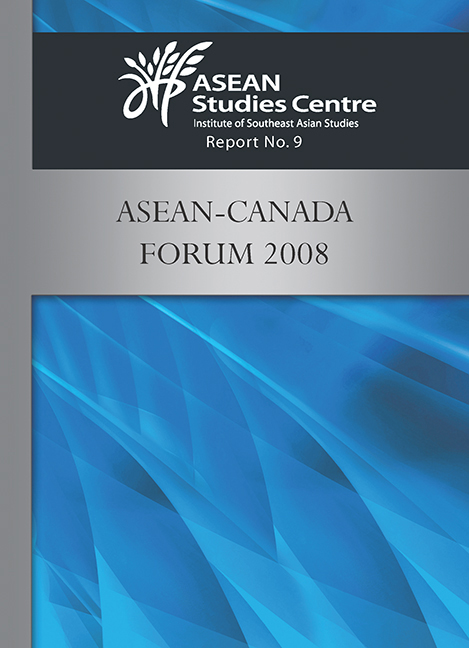Book contents
- Frontmatter
- Dedication
- Contents
- Introduction
- I Regional Economic Integration: ASEAN and Canadian Perspectives
- II Background Papers
- 1 AFTA–NAFTA: Trade and Investment Issues
- 2 Trade and Investment Issues in ASEAN Economic Integration
- 3 Institutional Development in ASEAN
- 4 Governance Issues in NAFTA
- 5 Different Approaches to Dispute Resolution under ASEAN
- 6 Dispute Resolution under NAFTA: Evolution and Stagnation
- 7 Winners and Losers in ASEAN Economic Integration: A Perspective from Vietnam
- 8 Winners and Losers in International Economic Integration: The Distributional Effects of NAFTA
- 9 Cross-border Labour Migration in ASEAN: Issues and Challenges
- 10 Labour Market Integration within NAFTA
- Annex I: Programme of the Forum
- Annex II: List of Participants
- Annex III: Rules-based Governance
8 - Winners and Losers in International Economic Integration: The Distributional Effects of NAFTA
from II - Background Papers
Published online by Cambridge University Press: 21 October 2015
- Frontmatter
- Dedication
- Contents
- Introduction
- I Regional Economic Integration: ASEAN and Canadian Perspectives
- II Background Papers
- 1 AFTA–NAFTA: Trade and Investment Issues
- 2 Trade and Investment Issues in ASEAN Economic Integration
- 3 Institutional Development in ASEAN
- 4 Governance Issues in NAFTA
- 5 Different Approaches to Dispute Resolution under ASEAN
- 6 Dispute Resolution under NAFTA: Evolution and Stagnation
- 7 Winners and Losers in ASEAN Economic Integration: A Perspective from Vietnam
- 8 Winners and Losers in International Economic Integration: The Distributional Effects of NAFTA
- 9 Cross-border Labour Migration in ASEAN: Issues and Challenges
- 10 Labour Market Integration within NAFTA
- Annex I: Programme of the Forum
- Annex II: List of Participants
- Annex III: Rules-based Governance
Summary
Introduction
Trade, in its various modes, is the extension of commerce across borders. The basic economics of trade are thus the basic economics of the market economy in general: it is all about the boost in productivity from division of labour and specialization. Based on economic theory, trade is a win-win proposition — which is another way of saying it is a positive sum game. Thus, economic incentives naturally induce trade; absent restrictions, to trade is the norm — not to trade is abnormal.
What is true in the abstract is also for the most part true in the real world. Trade is a win-win proposition, at least at a sufficiently aggregate level and conditional upon a certain minimum level of competence in economic policy and governance. On this point there is little dispute. Hence we observe a trade intensive global economy.
The disputes arise when it comes to questions of how best to take advantage of trade opportunities (for example, how much, how fast, and with which trading partners a country should liberalize, questions which continue to be debated intensely with respect to developing countries); and whether, under particular given conditions, additional trade is beneficial (a question that is presently under debate in developed countries, and particularly in the United States, about the impact of trade given the extreme differences in wage compensation between the United States and China, Mexico and other developing countries). This is one reason why the political hurdles of advancing multilateral trade liberalization in the context of the Doha Round or regional/bilateral free trade agreements have proven to be so high.
But even if trade liberalization and the international economic integration it promotes is a win-win proposition at the national level, when one drills down from the aggregate national level to the industry level, and further to the firm and household level, it becomes evident that the distribution of costs and benefits is almost inevitably uneven. And this makes international economic integration controversial and politically difficult regardless of the economy-wide benefits.
- Type
- Chapter
- Information
- ASEAN-Canada Forum 2008 , pp. 158 - 194Publisher: ISEAS–Yusof Ishak InstitutePrint publication year: 2010



